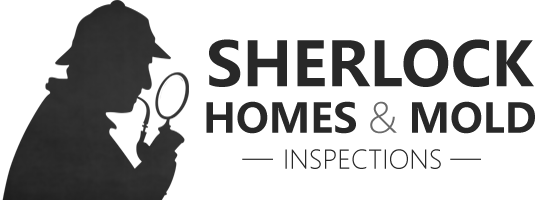Do you know the most frequently asked questions about home inspections? Are you getting ready to buy your first home? If so, you will want to soak up everything you can about the home inspection process, especially if you’re buying a fixer-upper.
The first thing you will want to understand is who pays for the home inspection.
The buyer pays for the home inspection. It’s essential to be aware of that so you that you allow for this cost in your house buying budget.
Home inspections reports carried out by a professional Home Inspector are not cheap. You won’t want to go through the inspection process unless you’re sure that the property is the one you love.
Here is what you need to know about home inspections.
What Is a Home Inspection?
Don’t be embarrassed to ask if you are not sure what a home inspection entails. To put it in simple terms, a home inspection involves looking over the structure of the property and all its systems.
The structure includes everything from the foundation to the roof, and everything in between that forms part of the structure of the home. The systems of the house are also included. That means the home inspector will inspect electrical wiring, plumbing, HVAC system, foundation, attic, roof, insulation, walls, ceilings, floors, windows, and doors, among many other things.
Why Do I Need to Have a Home Inspection?
The best way to answer that question is to say that the home inspection protects you as the purchaser of the property. If there any problems with any aspect of the home, it will be highlighted in the report.
If you are borrowing the money to buy the property, the lender will insist on a home inspection with certain types of mortgages. Even if you are a cash buyer, you should have a home inspection done. Waiving a home inspection becomes more commonplace in hot seller’s markets, but that doesn’t mean it’s a smart thing to do.
Home inspections cover many different aspects of the home and can pick up problems you may not even have thought about.
Can a home fail? A home inspection is not a way of delivering a definite yes or no. It is there to give you insight into problems or issues with the home. They may not be critical, but all the same, it is crucial to be aware of issues that could cost a lot of money to get fixed, especially when buying a house that needs work.
After all, investing in a new HVAC system is not the first thing you want to do when you have moved into your dream home.
Can I Inspect the Home Myself?
No, you can’t really inspect the home yourself and produce a home inspection report. It takes experience and training to know what to look for when it comes to inspecting a home. A home inspector will not only check systems and the structural integrity of the property.
They may also suggest that you get proof from the seller that permits were pulled for any work that required them. This is just as important as all of the other checks. Many people like to add improvements and carry out work themselves, but may not be qualified. It is essential to make sure any work done is up to the required standards, so the home is safe for you to live in.
Think about it this way. If a gas main has not been hooked up correctly, it could mean the loss of your home under very tragic circumstances. Electrical wiring systems are equally important. When not installed in the right way, they can cause a fire.
Secondarily, the language in most real estate contracts will say that the home needs to be inspected by a licensed professional. It makes sense, as the seller doesn’t want your Uncle Bob critiquing their home when they aren’t qualified to do so.
Don’t expect a seller to make repairs or grant concessions based on someone who isn’t qualified for giving advice.
How Much Does a Home Inspection Cost?
Home inspections vary in price depending on the size of the home or property that you would like to buy. As a ballpark estimate, you can plan on spending anywhere from five hundred to one thousand dollars.
On occasion, a home inspector may suggest calling in a specialist if there are areas of particular concerns such as roof, chimney, or foundation problems.
The cost of the inspection should not be a significant factor for picking an inspector. Saving a few hundred dollars is foolish when you’re spending hundreds of thousands of dollars.
You want someone who will do an exceptional job pointing out any flaws with the property. Just like any other business, there are good and bad inspectors.
Are Home Inspections Pass or Fail?
No – absolutely not, although some inspectors are notorious for thinking they have the power to kill a sale. Unfortunately, they are correct because many home buyers feel the word of the home inspector is gospel.
Keep in mind home inspectors are human just like the rest of us. They do make mistakes. At times their delivery is not that professional either. A home inspector’s job is to prevent facts about the property. It certainly is not to make you feel uncomfortable about purchasing a property that you shouldn’t feel that way about.
A professional home inspection should be providing the current condition of a house. It’s not an appraisal that determines the home’s market value. It is also not a municipal building inspection, which verifies local code compliance.
A home inspector, therefore, will not be passing or failing a house, but rather describe its present condition as well as show you what components and systems may need significant repairs or replacement. They should not be giving their opinions on what is a home inspection deal breaker and what isn’t. Great inspectors remain objective in their delivery.

Recent Comments